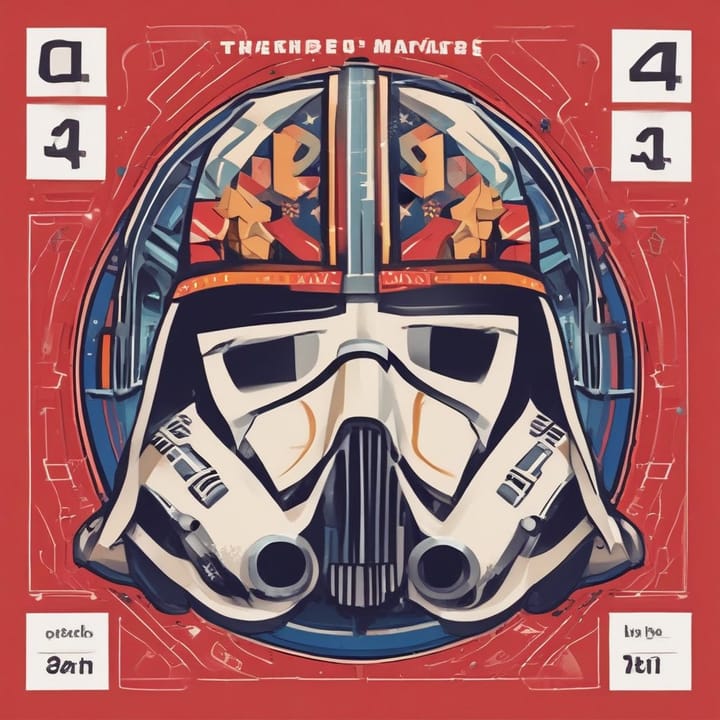Dune and the Harkonnens' Religion

Frank Herbert's Dune is a seminal work of science fiction that explores themes of politics, religion, and ecology. In this article, we will delve into the role of religion in the novel, with a particular focus on the Harkonnen family and their beliefs.
The Role of Religion in Dune
In the vast universe of Frank Herbert's *Dune*, religion plays a pivotal role in shaping the beliefs, actions, and relationships of the various factions. While the Bene Gesserit, the Spacing Guild, and the Fremen each have their unique religious beliefs and practices, the Harkonnens stand out for their lack of a formal, organized religion. Instead, the Harkonnens' religious beliefs are rooted in their own twisted value system, which is based on power, control, and the pursuit of wealth. Unlike the other factions in the novel, the Harkonnens do not have a formal religious organization or hierarchy. Instead, their beliefs are shaped by their desire for power and control, which is reflected in their actions and decisions throughout the novel. The Harkonnens see themselves as superior to others, and they believe that they have the right to do whatever it takes to maintain their power and status. This includes ruthlessly exploiting their subjects, engaging in political manipulation and intrigue, and using violence and intimidation to get what they want. At the heart of the Harkonnens' belief system is the idea that power is the ultimate goal, and that all other considerations are secondary. This is reflected in their treatment of others, including their own subjects on the planet Arrakis. The Harkonnens view the native Fremen as little more than tools to be used and discarded, and they have no qualms about exploiting them for their own gain. This lack of empathy and compassion is a defining characteristic of the Harkonnens' religious beliefs, and it sets them apart from the other factions in the novel. Another important aspect of the Harkonnens' religious beliefs is their emphasis on secrecy and deception. The Harkonnens are masters of manipulation and intrigue, and they use their cunning and guile to outmaneuver their opponents and maintain their power. They believe that knowledge is power, and they go to great lengths to keep their plans and intentions hidden from others. This is reflected in their use of secret agents, spies, and assassins to carry out their bidding, and in their willingness to use deceit and treachery to achieve their goals. The
The Harkonnens' Religion
While the previous chapter discussed the role of religion in Dune and the various religions and belief systems present in the novel, this chapter will focus specifically on the Harkonnens and their religious beliefs. The Harkonnens are one of the major factions in the novel, and their religious beliefs differ significantly from those of the other factions. The Harkonnens are portrayed as a ruthless and power-hungry family, more interested in material wealth and political power than spiritual enlightenment. Unlike the Bene Gesserit, who use their religious beliefs to manipulate and control others, or the Fremen, who have a deep spiritual connection to their desert environment, the Harkonnens have no such spiritual component to their belief system. Instead, the Harkonnens' religious beliefs are rooted in a twisted form of survival of the fittest. They believe that only the strong and ruthless can survive in a harsh universe, and they see themselves as the embodiment of this philosophy. This belief system justifies their brutal tactics and allows them to see themselves as superior to others. The Harkonnens' religious beliefs also shape their relationships with the other factions in the novel. They see the Bene Gesserit as weak and manipulative, and they have no respect for their religious beliefs. Similarly, they view the Fremen as primitive and backward, and they see their spiritual connection to the desert as a weakness to be exploited. This disdain for the religious beliefs of others is evident in the Harkonnens' treatment of the Fremen. Despite their reverence for the desert and its harsh conditions, the Harkonnens see the Fremen as nothing more than a resource to be exploited. They have no qualms about using brutal tactics to extract the spice from the desert, even if it means destroying the Fremen way of life in the process. The Harkonnens' religious beliefs also contribute to the overall themes and messages of the novel. The novel explores the dangers of unchecked power and the corrupting influence of material wealth. The Harkonnens' religious beliefs, which prioritize power and wealth above all else, serve as a cautionary tale of what can happen when a society loses sight of its spiritual values.
Conclusions
In conclusion, religion plays a significant role in Frank Herbert's Dune, and the Harkonnens are no exception. Their beliefs shape their actions and decisions, and their relationship with the other factions in the novel is heavily influenced by their religious beliefs.


